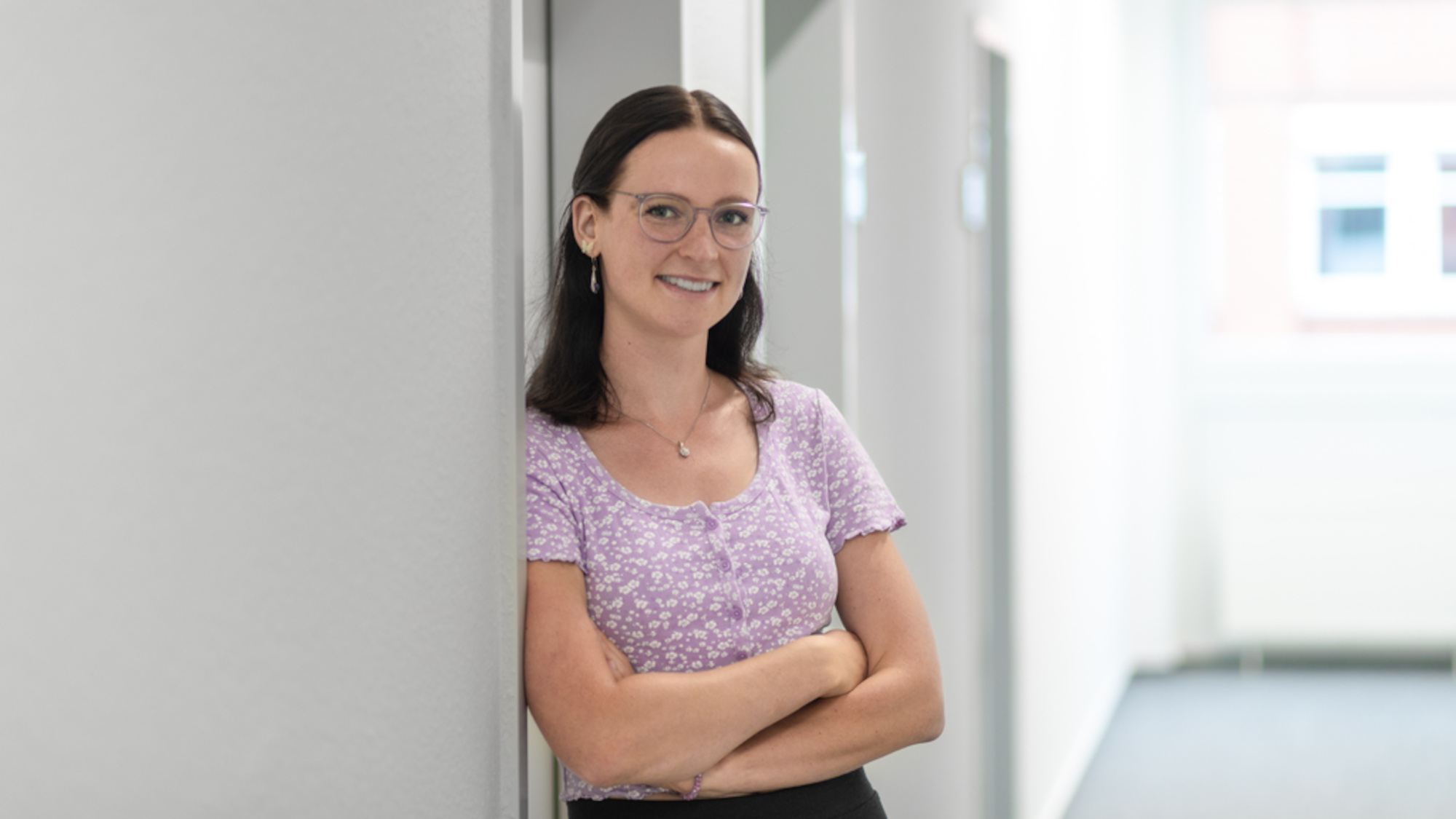
© Matej Meza / Universität Bremen
Twin Study: The Development of Self-Confidence
Jana Instinske used data from twin studies to examine the influence of nature and nurture in determining self-confidence
Why is it that some people have a positive view of themselves and others have a lower sense of self? Psychology has examined this topic from many angles, but there is no clear answer as to how much of it is due to social influences and how much we inherit from our parents. Psychologist Jana Instinske investigated this topic in her master’s thesis under Professor Christian Kandler’s supervision using data from twins. Her work received this year’s award from the Division of Differential Psychology, Personality Psychology and Psychological Diagnostics (DPPD).
You wrote your award-winning master’s thesis on the subject of personality psychology and conducted a twin study. What conclusions did you make?
In my master’s thesis, I pursued the idea that people who like themselves tend to rate their personal competence as well as their ability to control external circumstances higher than others. Based on this, I examined whether there are common genetic factors which contribute to how high people rate different aspects of themselves. I found that there is a genetic predisposition for whether people have a generally positive or negative view of themselves. You can think of it as a common, genetically rooted core, which underlies different aspects of self-perception. However, the specific characteristics of individual self-evaluations can also deviate from the core tendency.
Does that mean that genetics play a large role in determining whether someone is self-confident?
Partially. The biggest takeaway from my thesis is that there is a strong genetic component at play when people have high self-confidence across many areas. When people like themselves, they tend to be more convinced that they have control over their lives. This connection is to a degree influenced by common genetic influences. However, that does not mean that genetics determine everything. In addition to genetic influences, environmental factors also play a role in the development of different self-assessments. Such environmental factors can be, for example, day-to-day experiences within friend groups as well as successes or failures in their careers.
Does your research help to better quantify the proportions of genetic and environmental influences?
Almost all personality traits are, to differing degrees, influenced by genetics. Therefore, the significance of my research is more that I examined to which extent the connections between different personality traits can be ascribed to genetic or environmental factors. Information from twins helps a lot to quantify such influences. Identical twins have an identical genetic composition, which means that differences between two identical twins are due exclusively to individual experiences.
“There is a genetic predisposition for whether people have a generally positive or negative view of themselves.”
Is it common for twins to develop completely differently due to their lifestyles?
That obviously depends on which exact characteristic one looks at. However, generally speaking, a good portion of the development of twins’ differences can be traced back to their individual experiences and lifestyles. It is actually reassuring to see that there are such differing developments in twins. Otherwise, it would mean that our self-image is pre-determined at birth. In that case, someone who has a genetic proclivity for a more negative view of themselves would not be able to develop more trust in their own abilities, regardless of how many positive, successful experiences they have. Fortunately, the genetic makeup seems to lay the foundation, but this is then supplemented by personal experiences.
Do you view twins differently as a result of your research?
I am not sure if I would say that, but there are definitely many aspects about twins that interest me. My research showed me, for example, that the correlations between different self-perceptions sometimes do not follow the generally established patterns. In individual cases, it is quite possible that someone has high confidence in their abilities but still has low self-esteem. Such deviations seem to arise predominantly from individual experiences that twins do not share. As a result of my work, I am interested in finding out exactly which experiences lead to differences in the various self-evaluations of twins. I am addressing this, amongst other things, in my doctoral research.
Do you have any friends or family who are twins? Do they approach you with more caution now?
I actually do not have any twins in my social circle. However, if I did, I would emphasize that behavioral-genetic research like mine is not usually as focused on researching twins. The goal is more to use the uniqueness of twins’ shared genetic makeup and their partially shared experiences to determine the extent to which genetic or environmental influences explain similarities and differences in people as a whole. Obviously, it is good to consider information from as many twins as possible for this. Which is why I am grateful to have been able to use so much information about twins from a larger research project conducted by Christian Kandler.
Further Information
The Pearson publishing group sponsors the award of the Division of Differential Psychology, Personality Psychology and Psychological Diagnostics (DPPD). The award ceremony will take place on Monday, September 25, from 1 p.m. to 3 p.m., as part of this year’s DPPD meeting in Salzburg, Austria.